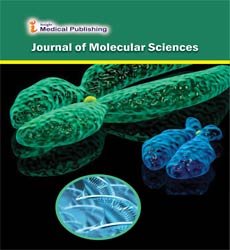Bacteremia in Febrile Neutropenic Cancer Patients in Egypt
1Zayed Military Hospital, Abu Dhabi, United Arab Emirates
2National Cancer Institute, Cairo, Egypt
3Department of Molecular Biology, Al Azhar University, Cairo, Egypt
- *Corresponding Author:
- Ali Gad AlKarim
Zayed Military Hospital Abu Dhabi, United Arab Emirates
Email: alialshandawely@yahoo.com
Received: October 15, 2020; Accepted: November 12, 2020; Published: November 19, 2020
Abstract
Bacteremia is one of the major causes of life-threatening complication in patients with cancer. Significant changes in the spectrum of microorganisms isolated from blood culture BC have been reported in cancer patients over the past years.
Introduction
Bacteremia is one of the major causes of life-threatening complication in patients with cancer. Significant changes in the spectrum of microorganisms isolated from blood culture BC have been reported in cancer patients over the past years.
The aim of this study was to determine the predominant bacterial species causing bacteremia among febrile neutropenic FN cancer patients at the national Cancer Institute in Egypt (NCI).
Materials and Methods
A total number 300 BC from 300 FN cancer patients at NCI, Cairo University were included in this study. All cases were inpatients with mean age of 51 years, 158 patients were male (53%) while 142 patients were females (47%). BC was collected for microbiological investigations. Identification of the isolated organisms by the cultural characters (Morphological of bacterial isolates, Gram stain reaction, motility test and biochemical tests) for each organism using standard semi-automated techniques.
Results and Discussion
Sixty-eight BC were positive (22.6%) and 232 BC were negative (77.4%). Gram negative bacteria isolated and identified in 11 blood cultures (16.17%), while gram positive isolates identified in 57 BC (83.8%). Among the Gram-negative organisms, 4 (5.8%) were Pseudomonas aeruginosa, 4 (5.8%) were E. coli, 1 (1.5%) was Klebssila pneumoni, 1 (1.5%) was Acintobacter and 1 (1.5%) was Citrobacter frenudiri
| Total | Mean age | Underlying center | ||||||
|---|---|---|---|---|---|---|---|---|
| Hematological cancer | Solid tumor | |||||||
| A. Leukemia | Lymphoma /HD | Other | Ovarian | Lung | Other | |||
| Complication (Non – Lethal) | 3348.50% | 47 (18-76) | 312.50% | 1771% | 417% | 222% | 111% | 667% |
| Complication (Lethal) | 3551.40% | 53(18-82) | 623.00% | 1558% | 519% | 556% | 111% | 333% |
Conclusion
This study showed that patients with febrile neutropenia are vulnerable to developing bacteraemia, and multidrug resistant are the main cause of bacteraemia in febrile cancer patients in Egypt. There is need for on-going antimicrobial surveillance to guide antimicrobial therapy and support the development of infection control and antimicrobial governance programs in Egypt.
References
- Anastasia A, Helen G (2007) Fever of unknown origin in febrile leukopenia. infectious disease clinics of North America. J Mol Sci 1055-1090.
- Bucaneve G, Micozzi A, Menichetti F, Martino P, Dionisi MS, et al. (2005) Levofloxacin to prevent baterial in fection in patients with cancer and Neutropenia. N Engi J Med 353:977-87.
- Cleary Jf (2006) Fever and sweats including the immunnocompromised hosts. In: Berger A, Prenoy RK, Weissman DE, eds.principles and practice of Supportive Oncology. Philadelaphia, Pa: Lippinocott -Raven Publishers. J Mol Sci 119-131.
- Cordoniner C (2005) Management of infectious complications in hematological patients. Text book of malignant hematology.Taylor and francis Group, London and New yourk. J Mol Sci 826-881.
- Hsieh MM, Everhart JE, Byrd-Holt DD, Tisdale JF, Rodgers GP (2007) Prevalence of neutropenia in the U.S. population: age, sex, smoking status, and ethnic differences. Ann Intern Med 486-92.
- Isenberg HD (2004) Clinical microbiology procedures hand book. American Society for Microbiology.
- Klastersky, L. Ameye, J. Maertens, A. Georgala, F. Muanza, et. al (2007): Bacteraemia in febrile neutropenic cancer patients. Int J Antimicrob Agents 30S: S51–S59
- Paul M, Yahav D, Fraser A, Leibovici L (2006) Empirical antibiotic monotherapy for febrile neutropenia: systematic review and meta-analysis of randomized controlled trials. J, Antimicrob Chemother. 57. J Mol Sci 176–89.
- Rokusz L, Lasszlo L (2005) Infections of febrile neutropenic patients in malignan hematological diseases (Second study period). J Mol Sci 170:653-7.
- Chemotherapy-induced febrile neutropenia Pediatr hemato Oncl. J Mol Sci :665-70.
Open Access Journals
- Aquaculture & Veterinary Science
- Chemistry & Chemical Sciences
- Clinical Sciences
- Engineering
- General Science
- Genetics & Molecular Biology
- Health Care & Nursing
- Immunology & Microbiology
- Materials Science
- Mathematics & Physics
- Medical Sciences
- Neurology & Psychiatry
- Oncology & Cancer Science
- Pharmaceutical Sciences
